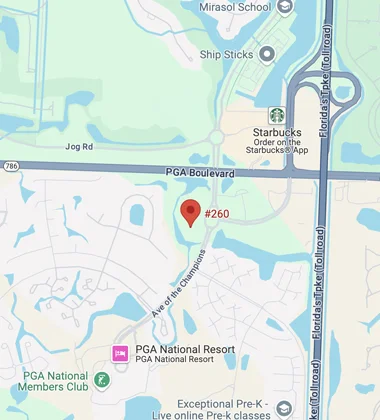Blind But Barred: Physical ADA Violations You Might Not Know Are Illegal

Business owners in places of “public accommodation” must comply with accessibility requirements set forth in Title III of the federal Americans with Disabilities Act (ADA). While you might not be familiar with the term “public accommodation,” it refers to any establishment that serves the public. As such, any business owner in the Palm Beach Gardens area who runs a restaurant, retail store, theater, hotel, and more must be in compliance with the ADA. That includes making businesses accessible to individuals who are blind or have low vision. The ADA requires that businesses make websites and other forms of electronic communication accessible, and physical characteristics or qualities of the business must also be accessible.
What are some of the common types of physical ADA violations that occur? The following are physical ADA violations that you might not know are illegal.
Inaccessible Signage
The ADA has specific standards for signs or signage, and places of public accommodation must comply. Generally speaking, signs are required to meet both visual and tactile requirements so that they are accessible to individuals who are blind or with low vision. Various types of signs must meet tactile requirements that allow them to be understood by a person who cannot otherwise read visual text information on them. Both interior and exterior signs, as well on signs marking doors, stairways, elevators, and exits all must be tactile. There are then specific technical requirements for the tactile characters used on the signs.
Lack of Tactile Maps
Tactile maps are those that can be read by touch, like a tactile sign. Certain types of maps and navigational signs must be tactile under the ADA, as discussed above. When a business does not have appropriate tactile maps or navigational signs, blind customers or those with low vision may have limited situational awareness, putting them in an unequal position to customers without a disability.
High Counters and Protruding Objects
High service counters, especially in older businesses that have not undergone ADA renovations, are a common type of physical barrier to a person who is blind or with low vision being able to identify where to receive service or where to avoid walking (and can walk into a high counter). Similarly, certain types of protruding objects that are both high and low levels in business walkways, drinking fountains being the obvious example, can violate ADA requirements because they cannot always be detected by a blind person who is using a cane, and that person may walk into one of the protruding objects and suffer an injury.
Stairs Without Accessible Cues
Stairways, and signs for stairways, must be accessible for blind and low-vision users. Stairs are required to have accessible design elements that provide cues for people who are blind or have low vision to be able to use them.
Contact a Palm Beach Gardens ADA Violation Lawyer Today
If you are blind or have low vision and encountered an ADA violation at a local business in South Florida, it is important to find out more about alerting the business to the violation and taking action if the business will not address the violation. The ADA is in place to ensure that individuals with disabilities have equal access to public accommodations, and it is important to find out more about filing an ADA claim when violations and accessibility issues exist. One of the experienced Palm Beach Gardens ADA violation lawyers at Sconzo Law Office can speak with you about the possibility of filing an ADA claim. Contact our firm today for more information.
Source:
ada.gov/resources/lodging-guide/

